The day before the 57th anniversary of the first airing of Star Trek, NEUTRAL ZONE STUDIOS released the sixth installment of its fanthology series, TALES FROM THE NEUTRAL ZONE. The previous five were the following…
“THE LOOKING GLASS”
“ENDOSYMBIOSYS”
“DOOMSDAY”
“WHEN DUTY CALLS”
“THE TEST OF TIME”
The last of these five, “The Test of Time,” featured VIC MIGNOGNA (of STAR TREK CONTINUES fame) directing with JOSHUA IRWIN (of THE AVALON UNIVERSE) acting as director of photography and editor. The sixth Neutral Zone offering, “THE LOST STARSHIP,” also features these two fan film veterans, with Vic once again directing and Josh as DP. But it also features some brand new names to the world of Star Trek fan films, including writer and executive producer BRAIN W. PETERSON, who had never written a fan film before (and in my humble opinion, knocked it out of the park on his first try).
The film also features a notable lead. JEFF JOHNSON, who plays Captain Blake Hovis, is a voice actor with a fairly impressive filmography. What makes him extra notable, however, is that he appeared as Finnegan (and did an incredible job) in the never-completed and never-officially-released STAR TREK: PHASE II episode “ORIGINS: THE PROTRACTED MAN.” Vic also appeared in that episode as Jim Kirk’s father, and Jeff and Vic are close friends. So that’s how Jeff returned to fan films over a decade later. As an amusing aside, Jeff is a pilot for a major airline (voice acting is not a primary profession for most), and he texted the Vic and Josh photos of him reviewing and memorizing his lines in the script while sitting in the cockpit with the plane on autopilot.
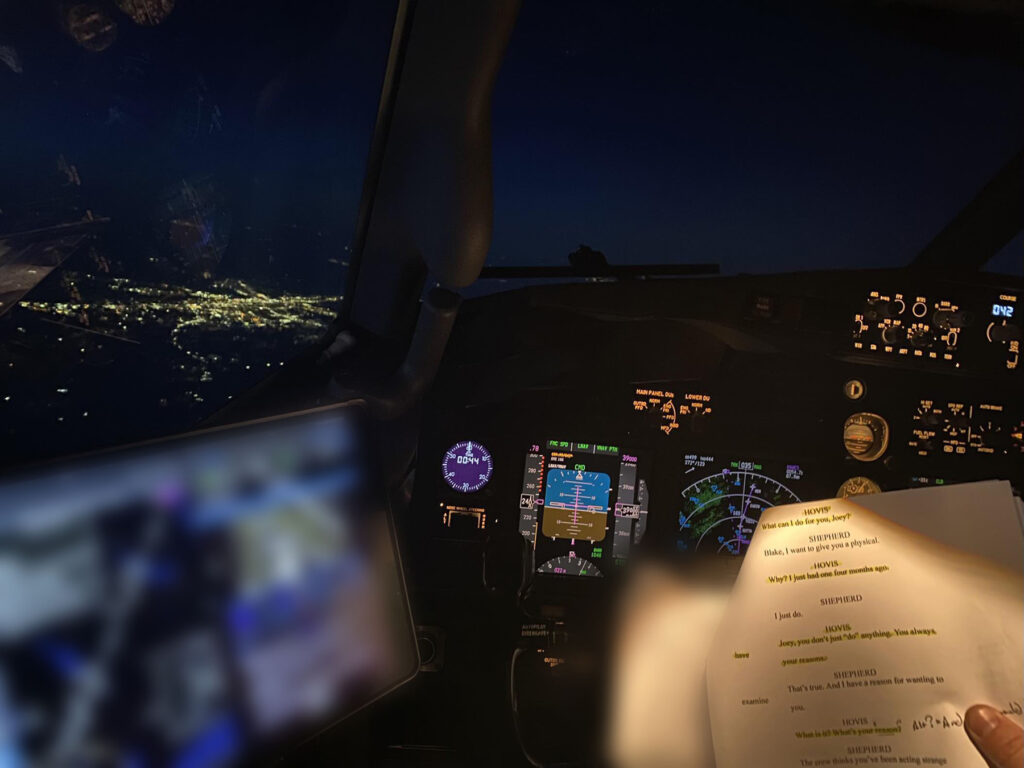
Each of the actors, all cast by Vic, put in very strong performances, as most had training, which can make a big difference. Granted, the majority of fan films don’t have the luxury to bring in experienced actors, and indeed, part of the fun of fan films is fans getting to strut their own stuff, even without the training. However, it’s clear from watching “The Lost Starship” that this cast is made up of folks who know what they’re doing. And that combined with Josh’s professional skills as DP and Vic’s accomplished directing, along with a very solid script from professional writer Brian W. Peterson, to produce a very impressive finished production…
For this particular fan film, I’ve opted to interview one new face and one old face. Part 1 will focus on newcomer to fan films, writer Brian W. Peterson. And then in Part 2, we’ll chat with Josh about DP-ing and what it was like working on this project.
First up, Brian…
JONATHAN – Welcome to the wonderful and whacky world of Star Trek fan films, Brian!
BRIAN – Thanks so much. It’s great to finally be here.
JONATHAN – I know that you’re actually a professional writer with a bunch of published novels under your belt. How did you start off as a writer?
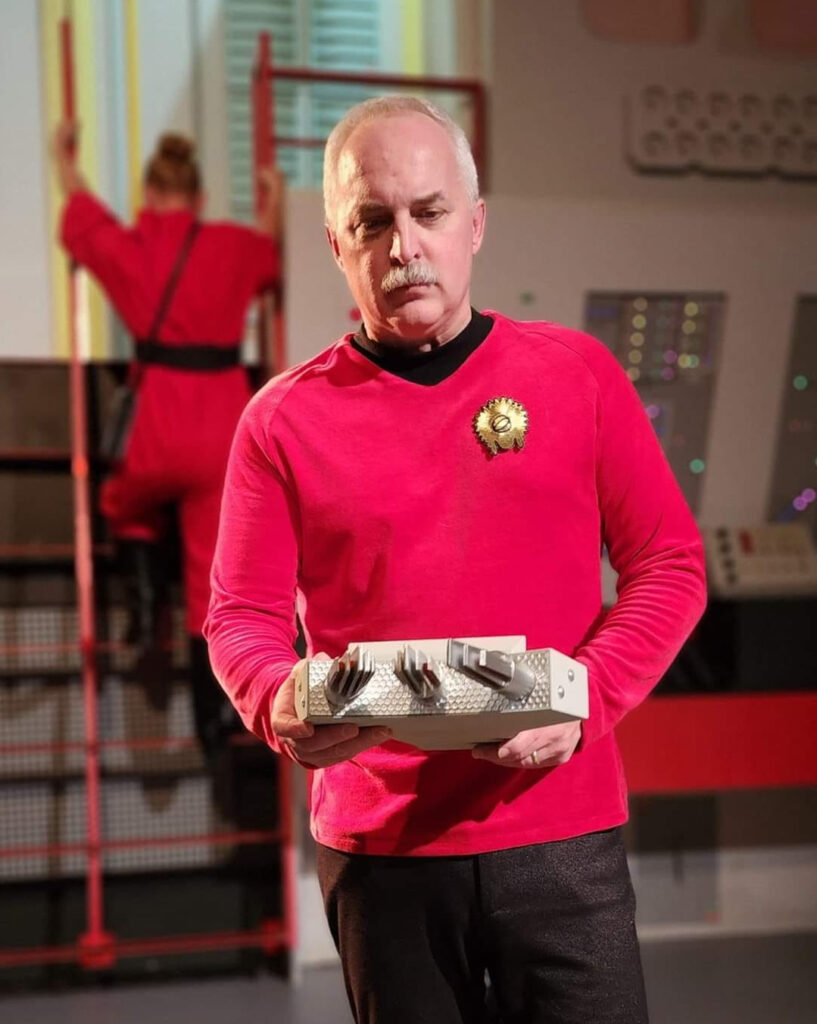
BRIAN – I was born in Kansas City and raised in the Kansas City area. I was always drawn toward my imagination, drama, intensity, and I love learning about human psychology and what goes on in the mind…especially the deteriorating mind. And all of this just drew me toward writing and creating.
And while I started off in college as a business major, I just needed to write. So I switched to a TV/Film/Radio major. After college, I moved to southern California where I worked in television at a TV station. In my spare time, I wrote screenplays. But it’s a brutal industry, and it did not work out as I’d wished. So after being out there for a number of years, I moved back to Kansas City.
JONATHAN – Did you sell any of your screenplays while you were in California?
BRIAN – No. The only thing I ever had produced was a 30-minute short. And while we had a really good production crew, we had a couple of key positions that were filled by amateur volunteers. And while I appreciate the dedication and commitment to a project of someone willing to work for free, one of those people was our editor. And while I didn’t realize it then, editing is too important to leave to someone without experience, and the project didn’t turn out well.
So, after I returned to Kansas City, I took some of my screenplays and started to write novels. My first three novels are based on screenplays.
JONATHAN – How many novels have you written in total?
BRIAN – I’ve published five novels. Sci-fi/adventure was the first, then two psychological thrillers. The fourth novel is a true story about brothers during the Great Depression who then go off to fight in World War II. It’s based upon my family; I researched it over 20 years, reading hundreds of letters between family members. It’s called Paper Doll. And then my fifth novel, The Nova Quadrant, which came out in February of this year, is the first book of what will ultimately be a sci-fi trilogy.
JONATHAN – Where can people order these books if they’re interested?
BRIAN – You can find links to all five on my website at www.writtenbybwp.com. I’m also on Facebook and Twitter/X.
JONATHAN – Are these books published by a company or self-published?
BRIAN – The first two were professionally published. Then I realized there was much less hassle and way more benefits to just self-publishing.
JONATHAN – And do these five books bring in significant revenue, or do you have a regular day job?
BRIAN – No, I have a day job. But I’m working on getting Paper Doll to be produced as an 8-part streaming series. I’ve got a film producer involved, and getting that accomplished would launch me to where I want to be.
JONATHAN – I definitely wish you all the best of luck with that endeavor!
BRIAN – Thanks so much.
JONATHAN – Okay, let’s move on to how you ended up getting involved with Neutral Zone Studios so much that they actually decided to bring you on to write one of their fan films.
BRIAN – Many years ago, friend of mine gave my wife and me DVDs that he’d burned off the Internet of Star Trek Continues. And when my wife Mindy and I were recovering from COVID—and she had long-haul COVID, so she had a long and slow recovery—we decided to finally watch these episodes. Now, she’s always been a bigger Trekkie than me. And so I put the first disc in, and I said, “Now, Mindy, listen. This isn’t Shatner or Nimoy…” because she loves those guys. “It’s not the original crew.” And I hadn’t watched it yet, either.
And so we watched the first episode. And she was saying, “Ohhhh, I’m not liking this,” because it’s not the original cast. But it was a good episode. Then the second episode was really good. And then the third episode, the “Mirror, Mirror” one…
JONATHAN – “Fairest of Them All.”
BRIAN – Yes! They had really hit their stride by then.
JONATHAN – I actually think that episode is one of the all-time best Star Trek fan films.
BRIAN – I agree. Anyway, long after COVID and watching all the STC episodes, we were on vacation in Florida, and Mindy told me that Vic Mignogna was appearing at a convention in West Palm Beach. And she said, “Do you want to go down and meet him?” I don’t really care about meeting people, so I said, “No.” And then she said, “Look, he’d be good for your audio book.” And I said, “Okay, good point.”
And so we went down there and met him. I talked to him briefly and gave him my contact info, and he contacted me later. And so we got to know each other as we discussed him doing the audio book of Paper Doll. As my wife and I got to become more friendly with Vic, he said, “You have to come to Fan Appreciation Weekend in Kingsland,” and eventually, we did. And while we were there, they were talking about filming “The Test of Time” the next month. My wife got all excited, and the next thing you know, she’s a script supervisor for “The Test of Time.” I didn’t have the time to go, but she did, and she had a blast.
Then it was at another Fan Appreciation Weekend that I was at when somebody said, “Hey, you’re an author. You should write a Star Trek fan film.” At first, I wasn’t really interested. But as I kept thinking about it after I went home, I thought, “Y’know, that’s actually a pretty good idea.” So on a Friday night, I outlined the whole thing, made it up as I went along, and on Saturday morning, I got up and wrote it.
JONATHAN – Was writing it really that quick and easy?
BRIAN – Well, not exactly. When I get an idea in my head, I mull over it for days, weeks, and sometimes months. And then, after that period of time, I say, “Okay, I’m still thinking about it. It must be a good idea. This is something I can write later.” And I’ll make notes—either on the computer or on paper. But in this case, it was a little different. It was, “Do I want to write a Star Trek? Yeah, I kinda do. It’ll be fun.”
So what grew was the idea of writing a Star Trek fan film…not the actual story, which is usually what gets into my head. But I really didn’t have any idea of what I wanted to happen until that Friday night when I thought, “Okay, what am I going to write?” And then my creative juices just got going, and I thought of things like, “Let’s start with a peace conference with the Romulans.” And then I had to come up with ideas about how does that make sense?
And as I was outlining this, I kinda got stuck on how I wanted this to end. And before I write anything, I always need to know how it’s going to end. So at some point I realized that the only way to bail out the crew of the Cherokee was for the Klingons to save the day. And then I thought, “Wait a minute. These aren’t TNG Klingons. These are TOS Klingons. Klingons are not going to save the day for the Federation.”
But starting as far back as college, I’ve always wanted to write a story where everyone dies. And I thought it through, and I thought, “The Klingons can’t be the heroes here. So if the crew of the U.S.S. Cherokee are going to be the heroes, they have to stop the Klingons. But they’re too damaged to stop the Klingons. So they end up making the ultimate sacrifice for something greater than themselves, which is averting war.” And that’s what was appealing to me. It was a very different kind of Star Trek story that you haven’t seen a hundred times before. I had never seen an ending where the hero ship and crew all die for a greater good.
JONATHAN – So once you were done writing the script, what happened next?
BRIAN – The understanding that we had was that we wanted Vic to direct it. If you have a good director, then a lot of good things can happen. And Vic said, “If you’re writing it, I’m in.” Amusingly, he didn’t even read the script for a while; he just knew he was going to like it. And I would act as executive producer, even though I’m not listed as that in the credits because I didn’t want my name to show up too many times. Anyway, then I was introduced to Josh Irwin. Josh and I talked a little bit on the phone, and everything just snowballed from there. We shot it at Neutral Zone Studios in February of 2023.
JONATHAN – What did you do as executive producer?
BRIAN – My job was basically to make sure that we had someone to man every position and set the schedule. We started filming on Monday morning, shot all day through Wednesday and had everything done by Thursday at lunch. Vic got the cast, and I reviewed everything, including having input on post-production and editing. But for the most part, I have the belief that a producer is choosing his director to carry the vision, and I’m going to let the director do his thing unless there’s something I really don’t like.
Vic is “Mr. Star Trek,” and he knew exactly what it was he was doing. And there were times I would ask him questions, and there were times when I’d say, “Hey, what about this?” But not very often because my view as producer is I need to let the people do their jobs. I don’t believe in micro-managing because that’s just another way of saying, “I don’t trust you.” And Vic did a really good job about asking me about the script and things that might not translate from paper to film. So he’d say something like, “I’m thinking of changing this to this because I want this shot. What do you think?” And sometimes I’d ask for a certain shot, and he’d listen, and I appreciated that a lot.
JONATHAN – Did things go smoothly on the set?
BRIAN – Very much so, with a couple of small exceptions. Someone who was supposed to be part of the cast had to back out at the last minute because of a family emergency. That was the communications officer. But we found a replacement among one of the fans who was there that weekend to help out. She didn’t have any acting experience, but Vic brought a great performance out of her.
And also, there was a guy that they had used a lot for audio who suddenly couldn’t make it. So we were scrambling, and we did a lot of talking about how we were going to handle this. We ended up running audio through Josh’s camera, and it came out great. Actually, it was a lot easier. We still had a boom mic, but we didn’t have to worry about synching up. So it all worked out in the end, but going in, I was worried to death that we weren’t going to have what we needed for sound quality.
JONATHAN – So aside from those two things, the shoot went pretty well?
BRIAN – Josh and I were talking before we got there and before I really got to know him. And I said, “These things either go great or they crash and burn. Do you agree?” And he said, “Yes.” And it went great. No crashing and burning.
You know, when people think “fan films,” they don’t necessarily know what to expect. And a friend of mine said to me after he had seen The Lost Starship, “No offense, but honestly, when you told me you made a fan film, I expected it to be shot in somebody’s basement.” And that’s what a lot of people think going in. And in fact, I’ve seen shorts before where it’s some guys wanting to have fun. They make something, and they’re gonna laugh at each other and drink beer as they watch it. And if it doesn’t turn out great, it doesn’t turn out great; no big deal. They had fun. And I get that. There’s nothing wrong with that. It’s just that, when I was telling people that I wrote and produced a fan film, I had to make them understand that this is good quality.
JONATHAN – That it is, Brian! Once again, welcome to the Star Trek fan film community. I hope we can get some more scripts out of you!
BRIAN – That just might come to pass. We’ll see what happens from here.
Next time in Part 2 – Joshua Irwin explains what a director of photography does, and why it’s not just about the lights and the camera.

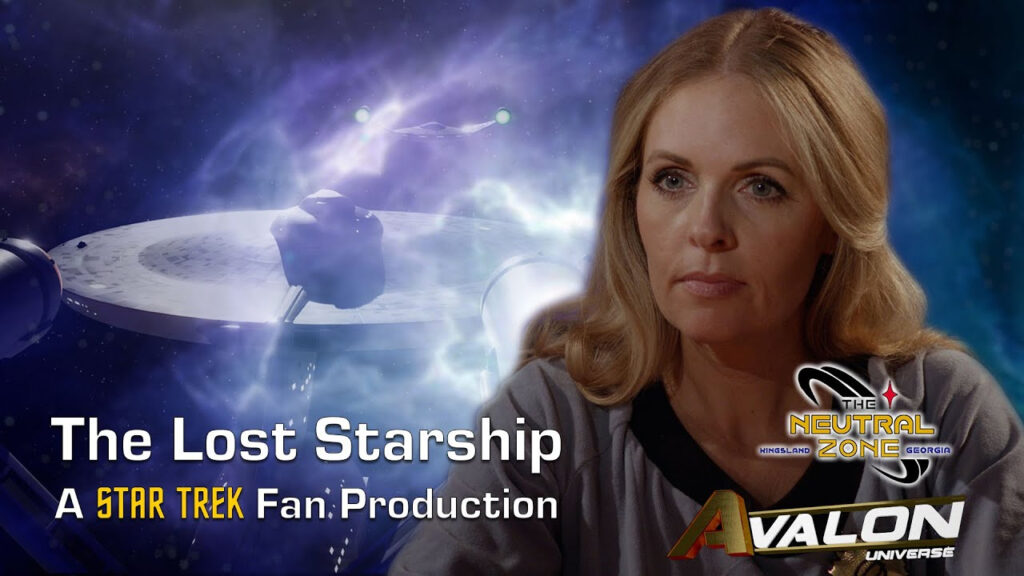
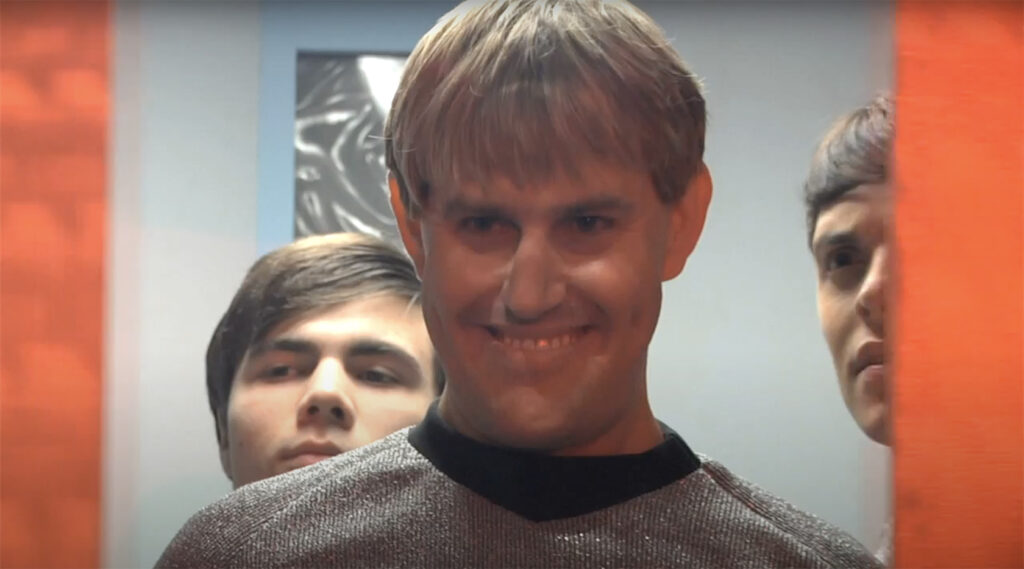

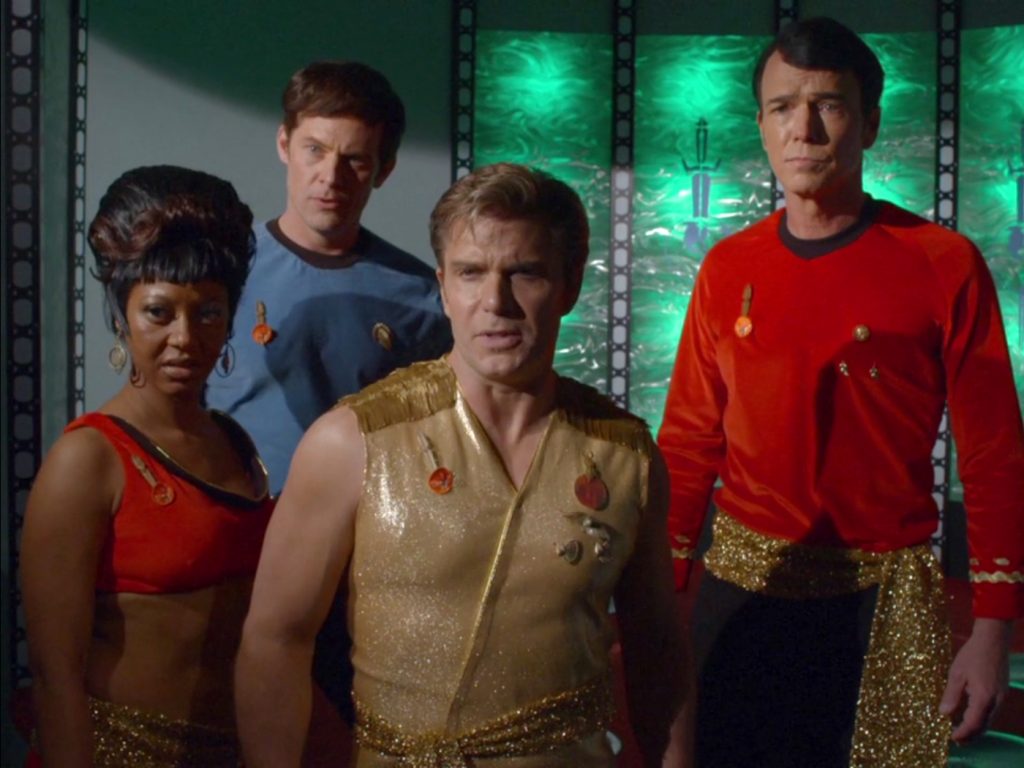
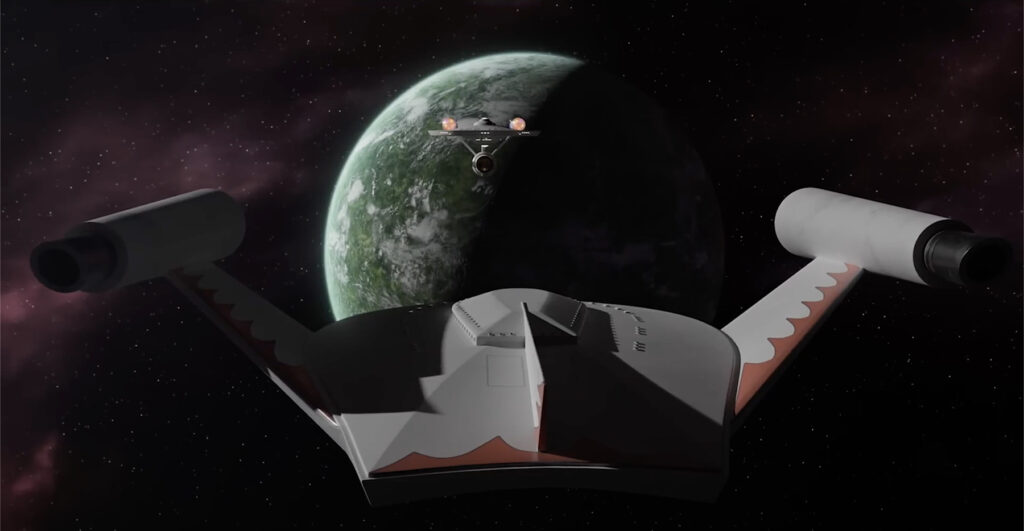
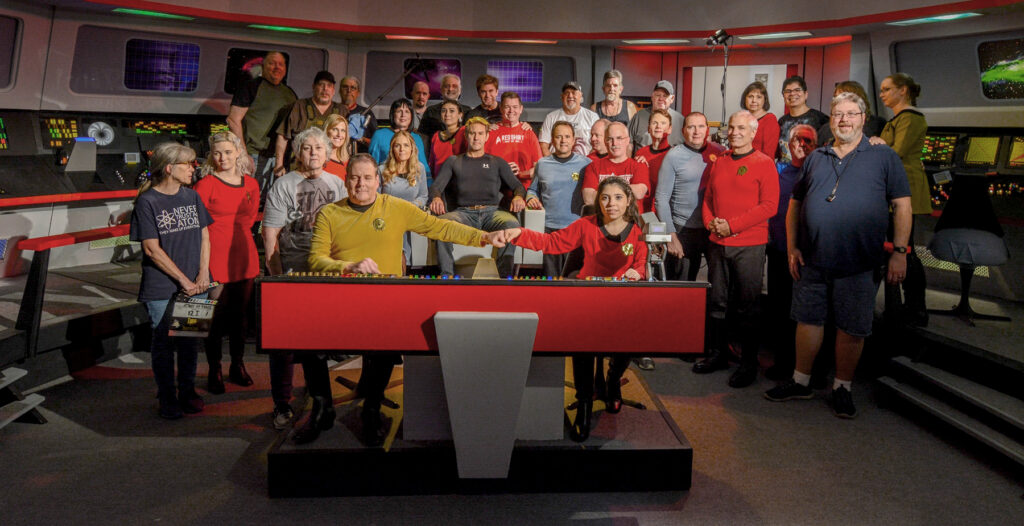
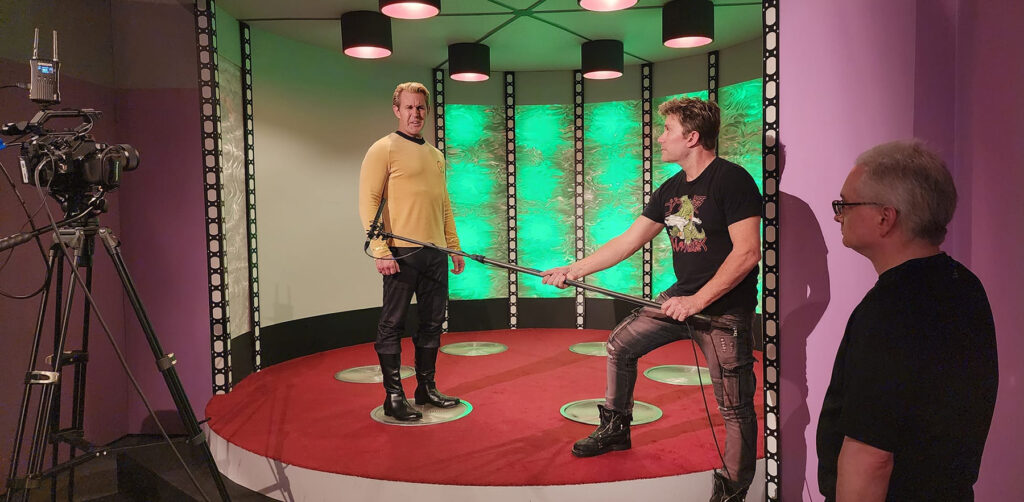
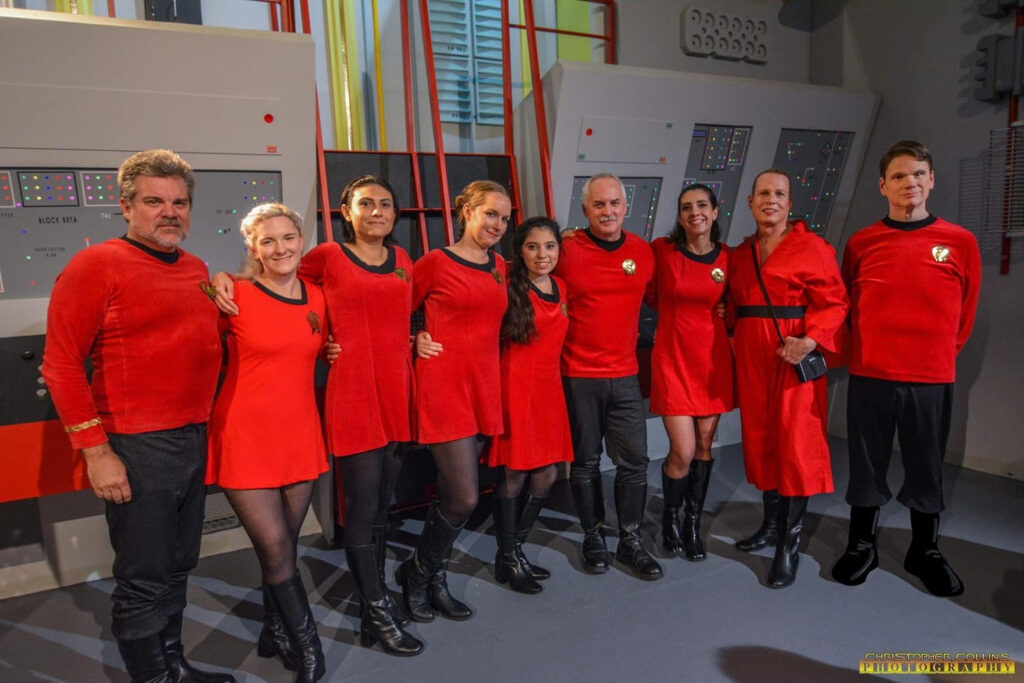
Great film. Definitely deserves some type of award when the time comes